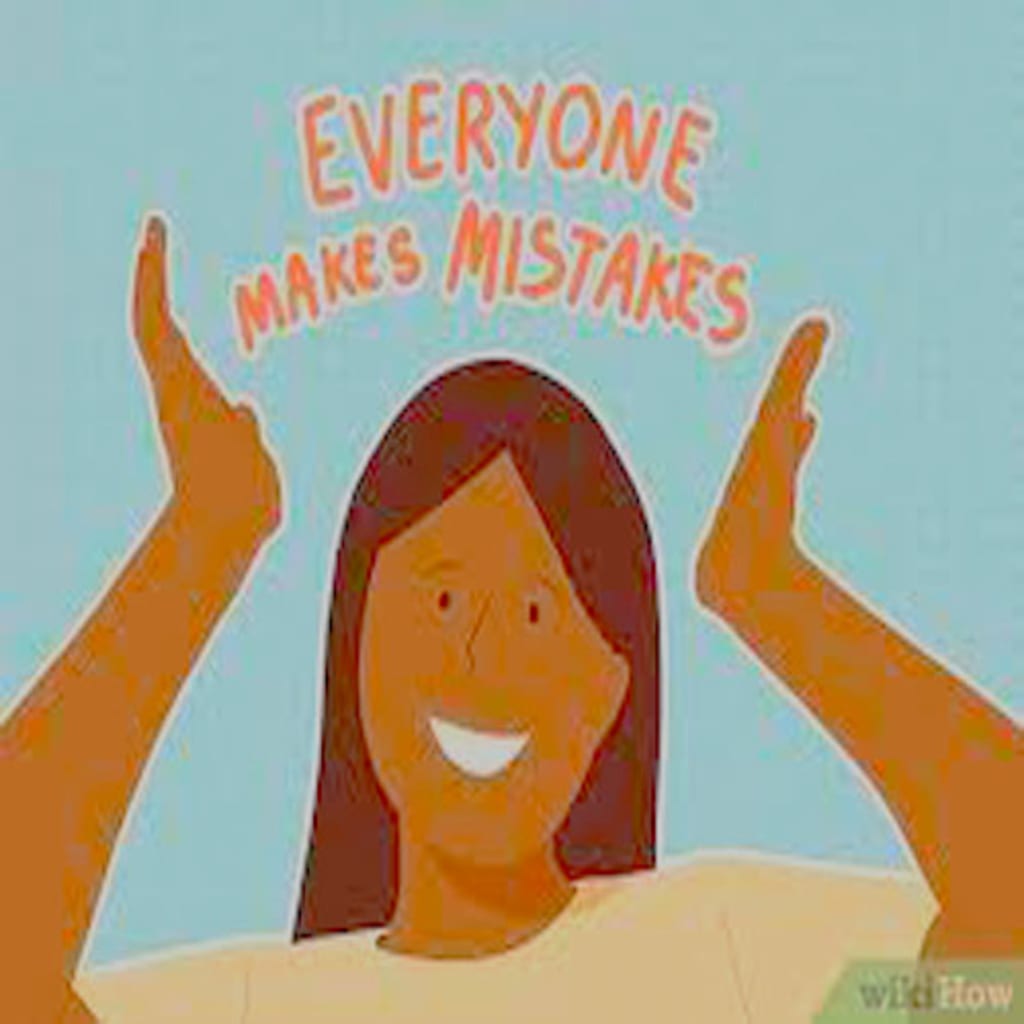HOW To overcome your mistakes?
mistakes are made but could be overcome

Introduction:
In 2019, a remarkable study involving over 400 participants was conducted to explore the intricate relationship between failure, learning, and self-improvement. In this study, individuals embarked on the journey of learning a mysterious, invented language through a unique game. Little did they know that their responses in the initial phase would shape their experiences and outcomes in the subsequent rounds. This study shed light on the multifaceted challenges of turning failures into opportunities for growth. It revealed that while failure is often described as a teachable moment, it's not always easy to derive valuable lessons from our mistakes. This article delves into the various factors that influence our ability to learn from failure, and the art of maintaining a balanced perspective on success and setbacks in our quest for mastery.
The Pain of Failure:
One of the most obvious hurdles to learning from failure is the emotional pain it can inflict. Failure threatens our self-image and self-esteem, causing us to question our capabilities and competence. A replication of the rune study demonstrated that participants who were cast as failures experienced a significant drop in self-confidence. This emotional distress can be more than just a temporary setback; it can hinder our ability to process new information effectively. When individuals feel demoralized or incompetent, their brains can effectively shut down, making it difficult to learn and adapt.
The Role of Self-Esteem:
The threat to our self-esteem is a critical factor in determining our ability to learn from failure. If the blow to our self-worth is significant enough, it can undermine our capacity to grow and improve. This highlights the importance of understanding and managing our emotional responses to failure. Rather than seeing it as a judgment of our worth, it should be viewed as a stepping stone on the path to mastery.
Tolerance for Failure:
Our capacity to tolerate and learn from failure is not universal but varies depending on our relationship with the task at hand. A 2011 study surveyed American students enrolled in introductory and advanced French courses. The results revealed that beginners often seek positive reinforcement as they are still testing the waters and determining their commitment to the task. In contrast, advanced students are more open to critical feedback and corrections as they are already invested in the process of improvement. Over time, they have built a higher tolerance for making mistakes, recognizing that it is an integral part of the journey to mastery.
Learning from Success vs. Failure:
Learning from success is relatively straightforward since it provides a clear roadmap of what works well. However, when we fail, the reasons can be multifaceted and challenging to pinpoint. It could be due to inadequate preparation, studying the wrong information, or even external factors. This ambiguity makes it difficult to understand what went wrong and, subsequently, how to improve. It's important to strike a balance between analyzing our failures and building upon our successes.
The Path to Mastery:
Learning from failure is a natural human desire, and there is a lot to gain from being resilient and cultivating a growth mindset. However, fixating on our failures can lead to a narrow focus, causing us to overlook our successes. A more effective approach is to build on our strengths and what we are doing right. The journey to mastery involves recognizing that setbacks are an integral part of the process and should be embraced as opportunities for growth.
Conclusion:
The study of learning from failure is a complex, multifaceted endeavor that involves understanding the emotional and psychological factors that shape our responses to setbacks. While it can be challenging, it is also profoundly rewarding. By managing our self-esteem, developing a tolerance for failure, and striking a balance between analyzing setbacks and celebrating successes, we can embark on a more fruitful journey towards personal and professional mastery. Remember, the path to success is paved with both triumphs and trials, and it is our ability to learn from both that truly sets us on the path to excellence.
About the Creator
Enjoyed the story? Support the Creator.
Subscribe for free to receive all their stories in your feed. You could also pledge your support or give them a one-off tip, letting them know you appreciate their work.
Reader insights
Nice work
Very well written. Keep up the good work!
Top insights
Easy to read and follow
Well-structured & engaging content
Expert insights and opinions
Arguments were carefully researched and presented





Comments
There are no comments for this story
Be the first to respond and start the conversation.